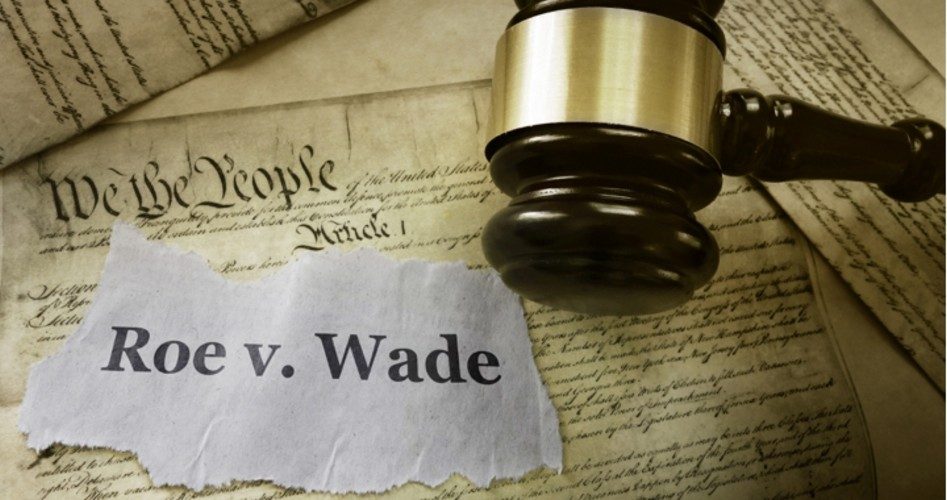
Alabama Supreme Court Justice Tom Parker issued a powerful statement October 19 in which he challenged the U.S. Supreme Court to overturn Roe v. Wade, the infamous 1973 High Court ruling that effectively legalized the murder of pre-born children via medical abortion in all 50 states.
Parker’s statement came in his concurring opinion in the Alabama Supreme Court case Jessie Phillips v. State of Alabama, in which complainant Phillips challenged his 2016 conviction and death sentence in the murder of his wife and their unborn child. Phillips contended that he could not be convicted of the murder of his unborn child because, under the law, the baby was not a person.
But in upholding Phillips’ conviction, the Alabama Supreme Court cited the state’s Brody Act, implemented in 2006, stipulating that, as stated in the law, a person, “when referring to the victim of a criminal homicide or assault, means a human being, including an unborn child in utero at any stage of development, regardless of viability.” In issuing its ruling the court concurred with the 12-year-old law that “the value of the life of an unborn child is no less than the value of the lives of other persons.”
In his concurring opinion, Parker, who is on track to become Alabama’s chief justice, called on the U.S. Supreme Court to overturn its disastrous 1973 decision, which has resulted in the murder of some 60 million pre-born babies over the past 45 years.
“I concur fully with the Court’s rationale that unborn children are persons entitled to the full and equal protection of the law,” wrote Parker in his supplemental opinion. “I write specially to expound upon the principles presented in the main opinion and to note the continued legal anomaly and logical fallacy that is Roe v. Wade…. I urge the United States Supreme Court to overrule this increasingly isolated exception to the rights of unborn children.”
He noted that the 1973 ruling lies in direct opposition to a number of state laws, such as Alabama’s Brody Act, that recognize pre-born babies as people and rule their intentional killing as criminal homicide. “In Roe,” declared Parker, “the United States Supreme Court, without historical or constitutional support, carved out an exception to the rights of unborn children and prohibited states from recognizing an unborn child’s inalienable right to life when that right conflicts with a woman’s ‘right’ to abortion.”
He charged that the “judicially created exception of Roe is an aberration to the natural law and the positive and common law of the states. Of the numerous rights recognized in unborn children, an unborn child’s fundamental, inalienable, God-given right to life is the only right the states are prohibited from ensuring for the unborn child; the isolated Roe exception, which is increasingly in conflict with the numerous laws of the states recognizing the rights of unborn children, must be overruled.”
Roe v. Wade rests on the Justice Harry Blackmun-written opinion that “the word ‘person,’ as used in the Fourteenth Amendment, does not include the unborn. In short, the unborn have never been recognized in the law as persons in the whole sense.”
Calling such reasoning “patently illogical,” Parker wrote:
A “right” created not from the language of the Constitution of the United States, but one abstracted from its supposed “emanations” and “penumbras,” the Roe exception stands as an indictment against the United States Supreme Court that “our Nation ceases to be governed according to the ‘law of the land’ and instead becomes one governed ultimately by the ‘law of the judges.’”
Parker concluded by expressing his “hope and prayer” that in the near future the U.S. Supreme Court “will take note of the crescendoing chorus of the laws of the states in which unborn children are given full legal protection and allow the states to recognize and defend the inalienable right to life possessed by every unborn child, even when that right must trump the ‘right’ of a woman to obtain an abortion…. The Roe exception is the last remaining obstacle to the states’ ability to protect the God-given respect and dignity of unborn human life. I urge the Supreme Court of the United States to reconsider the Roe exception and to overrule this constitutional aberration. Return the power to the states to fully protect the most vulnerable among us.”
Photo: zimmytws/iStock/Getty Images Plus

